Exchange Program with the labaratory Mathématiques Appliquées aux Systèmes (MAS) at Ecole Centrale Paris
Contact
Ben GlockerTechnische Universität München
Boltzmannstr. 3
85748 Garching bei München
Germany
fon: +49 (0)89 289-19405
fax: +49 (0)89 289-17059
room no.: 03.13.056
Projects
| 3D Shape Priors for Volume Segmentation |
|
Abstract The problem of image segmentation is one of the most well studied problems in computer vision. However, despite the many efforts devoted to dealing with it, this problem still remains largely unsolved. One of the reasons for that is because general image segmentation is recognized as being extremely ill-posed. Due to this fact, many researchers have thus focused on the problem of object-specific segmentation, where one tries to segment instances belonging to a specific category of objects. (e.g. "try to find all image regions corresponding to a 'car' object", or "try to find all image regions corresponding to a 'cow' object", etc.). In this case, it is well admitted that the choice of a good shape prior plays a very important role for obtaining segmentations that are object-like and of high quality. Based on this observation, the aim of this work will be to investigate the use of 3D-shape priors. In particular, it will be assumed that a parametric 3D model is available that can roughly describe the 3D shape of the specific category of objects. Given such information, the task of object-specific segmentation will then be posed as an energy minimization problem, where the goal is to extract not only the object's image region, but also its 3D pose. In this case, besides ensuring that the resulting segmentation will fit to the observed image data, the energy should also be responsible for ensuring that the above mentioned prior knowledge has been imposed on the final segmentation. |
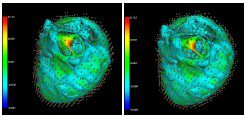
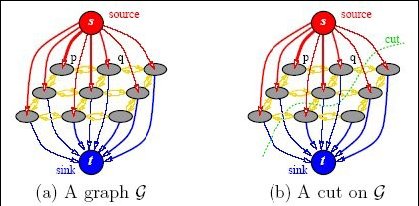
|
| Supervisor: Professor Nikos Paragios, Ecole Centrale de Paris |
| Compensation: 750 EUR net/month |
| PhD Possibility afterwards: Yes |
| Sign Language Recognition: Modeling the hand with articulated models, recovering correspondences between visual hand gestures and words and introducing syntax |
|
Abstract Sign language recognition is one of the ultimate objectives of computer vision. Being able to understand and communicate with deaf through a computer is a great challenge. The aim of this internship is to recover a set of visual worlds and the corresponding grammar of sign language. Different gestures corresponding to words will be scanned using a 3D range scanner. These data will then be mapped to an articulated model of the hand, providing a correspondence between words and a vector in R28 that consists of the set of the parameters of the model used to fit to the observation. These parameters will be then used to form syntax for the signs language in the space of parameters of the articulated model. The ultimate objective of this internship is to provide prior knowledge in hand-pose estimation towards sign language recognition from monocular video streams. In other words, once the grammar has been learnt, the next stage consists of using this grammar along with monocular video stream which captures hand gestures from where the R28 articulated parameters have been extracted to provide computer-aided communication with deaf people. This internship requires machive vision and statistical learning background. |
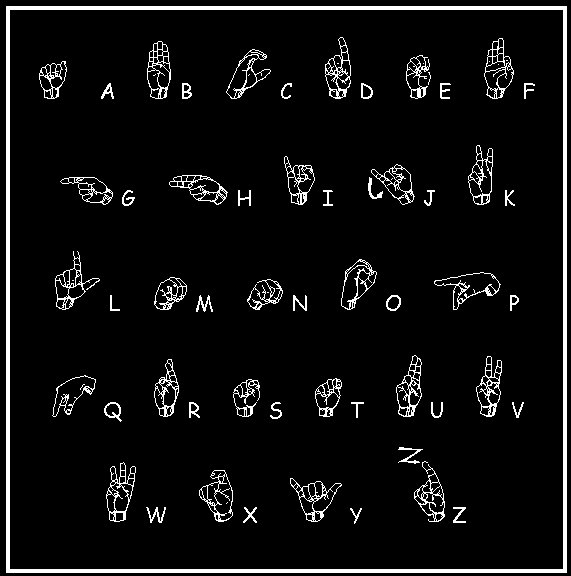
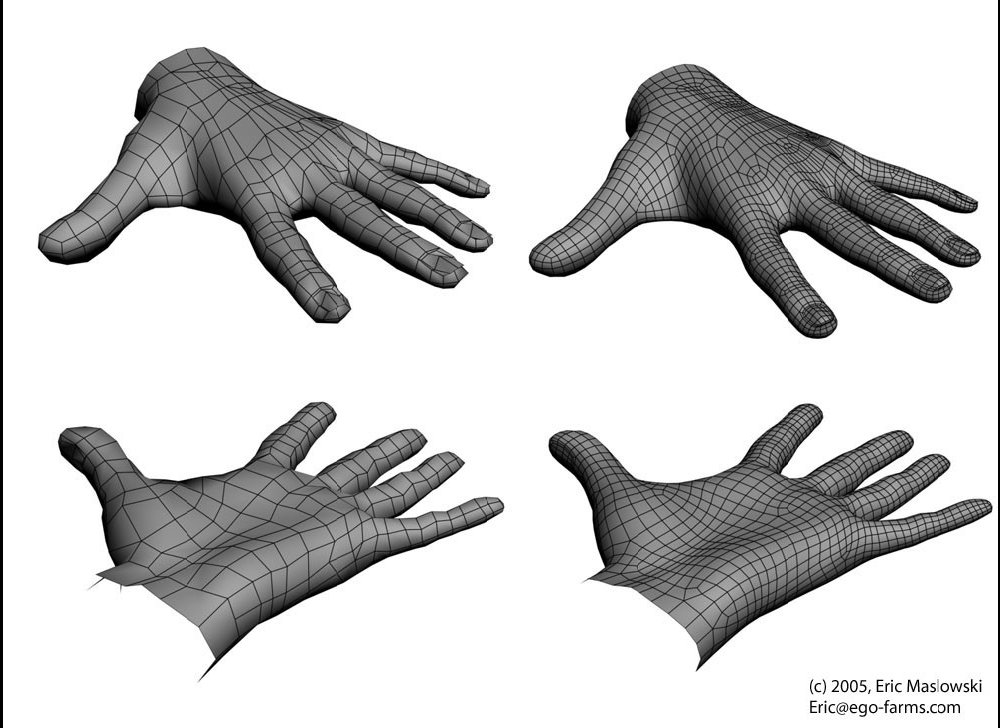
|
| Supervisor: Professor Nikos Paragios, Ecole Centrale de Paris |
| Compensation: 750 EUR net/month |
| PhD Possibility afterwards: Yes |
| Multiview Stereo Reconstruction of Knee: Breaking the sub-optimality Bound, Active Surfaces meet Linear Programming |
|
Abstract In total knee replacement surgery, also known as total knee arthroplasty, prosthetics are implanted in the knee joint as treatment for progressive diseases such as arthritis or trauma. In this internship, we aim to recover the 3- D shape of bones and prosthetic devices in patients who have undergone total knee replacement. Such an objective is addressed using a collection of 2-D X-rays acquired from multiple viewpoints. Then, both bone and prosthetic shape recovery are formulated as a multi-view reconstruction process through the minimization of an objective function. The objective function is designed to recover 3-D surfaces, which once projected to 2-D images,minimize edge-based and region-based criteria. The use of discrete optimization and in particular the max flow/min cut principle will be considered towards optimal reconstruction. Such reconstruction will also encode prior knowledge from the anatomy of the knee and has an ultimate goal to provide a patient-specific knee model which will be used to evalute the fitness of the prosthetic segment with the need through a 3Dmodel to 2D image registration in video sequences. Further validation of the method using other multiview data will be also explored. |
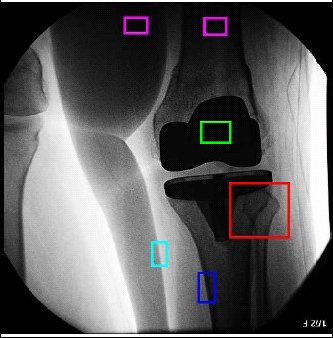
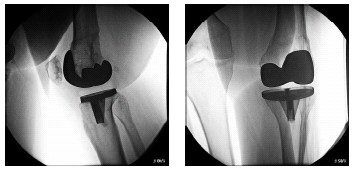
|
| Supervisor: Professor Nikos Paragios, Ecole Centrale de Paris, Professor Alain Rahmouni(MD), Henri Mondor University Hospital, Creteil |
| Compensation: 750 EUR net/month |
| PhD Possibility afterwards: Yes |
| Knowledge-based Segmentation: Variational PDEs and Model Reduction using proper orthogonal decomposition |
|
Abstract Knowledge-based segmentation is one of the most well studied problems in computer vision and aims to account for the absence of sufficient visual support. The approach often consists of two steps, a modeling one where given a set of training examples, one constructs a probabilistic representation of the space of a solutions and the segmentation step, where image support is combined with the prior to recover the optimal solution. Variational formulation and PDEs are quite popular to implement such a concept. The steady state solution of a partial differential equation often refers to the optimal segmentation solution. Such a process is computational inefficient and often fails to converge. The aim of this internship is to study dimensionality reduction on the PDE space or approximate the evolving PDE with a linear system that can be used to predict the state of the PDE when time goes to infinity. Such a process can be update in space, leading to more efficient means of solving non-linear PDEs for segmentation. |
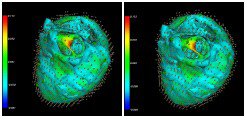
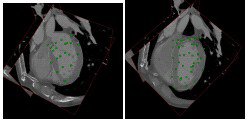
|
| Supervisor: Professor Nikos Paragios, Ecole Centrale de Paris |
| Compensation: 750 EUR net/month |
| PhD Possibility afterwards: Yes |
| 3D Reconstruction with Priors: Vision meets Computer Graphics and Architecture |
|
Abstract Image-based reconstruction is a well studied problem in computer vision. It consists of recovering depth maps from multiple images leading often to point clouds describing the geometry of the scene. Such an approach can deal very well with small scale reconstruction but suffers when considering large scale scenes. The aim of this internship is to consider 3D models of representative buildings or grammars. These models consist of a parametric representation of existing architecture. Then, stereo reconstruction becomes equivalent of finding the optimal building architecture as well as the optimal transformation between the model and the data. In such a scenario, images, elevation maps, range data can be used for inference and the method can be general enough to deal with large scale reconstruction. In the context of this internship, an effort to describe dominant architectures in Paris using parametric models will be considered. To this end, we will be inspired from computer graphics techniques for content creation, like virtual cities. Such methods consider a set of basic architectures, a set of rules to create content. Once such models have been constructed, the next step will be to introduce constraints on the reconstruction process using these prior models. |
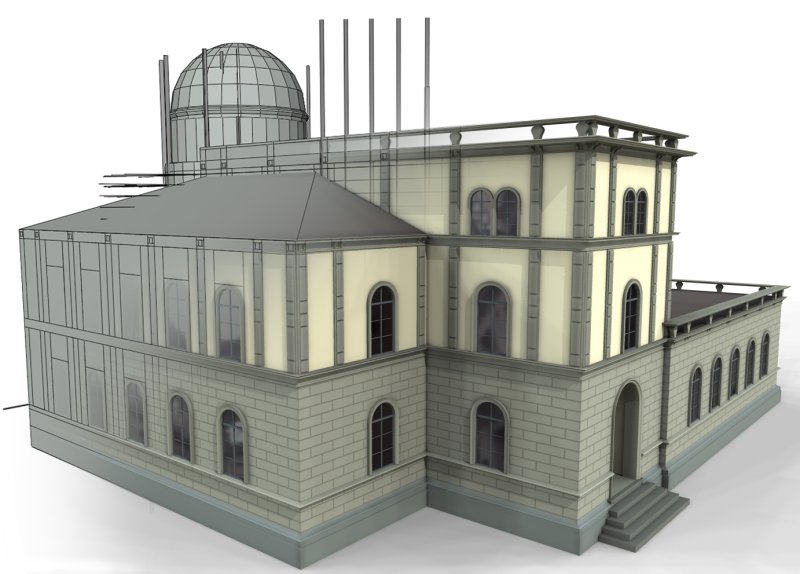
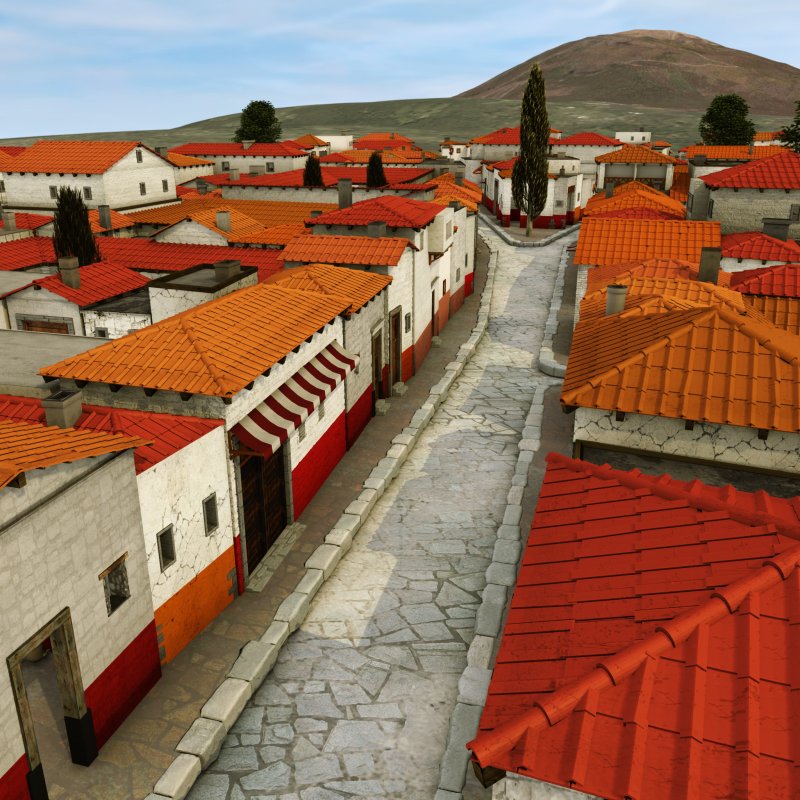
|
| Supervisor: Professor Nikos Paragios, Ecole Centrale de Paris |
| Compensation: 750-1,000 EUR net/month |
| PhD Possibility afterwards: Yes |


